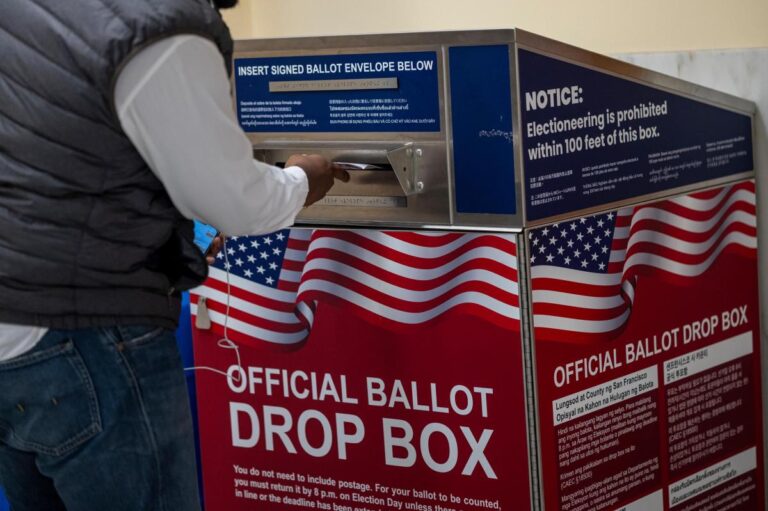Political Shift in San Francisco: A Look at Election Trends
Recent election results in San Francisco indicate a notable shift in political dynamics within this traditionally liberal city. In the latest electoral contest, more than 15% of voters supported Donald Trump, a significant increase from 9.3% during his initial presidential campaign in 2016. This percentage marks the highest level of support for a Republican presidential candidate in San Francisco in two decades.
Voter Sentiment and Political Context
The results reflect a broader national trend of shifting political allegiances, but they carry unique implications for San Francisco, where only 7% of voters are registered as Republicans. The recent election results could provide an opening for local Republican leaders, who are eager to engage the city’s affluent donor class that has previously distanced itself from the party.
“Currently there’s a self-fulfilling prophecy that Republicans can’t succeed in the city, so why bother supporting them?” noted Jay Donde, a co-founder of the San Francisco Briones Society, an organization advocating for moderate Republican ideals. “This shows there’s an opportunity for Republican candidates who can have success.”
Challenges and Opportunities Ahead
Despite the shift in support, challenges remain for the Republican Party in a city still firmly anchored in liberalism. San Francisco grapples with numerous issues, including a crisis of homelessness, rising street crime, and significant office vacancies—factors that contributed to voter dissatisfaction with the status quo. Daniel Lurie, a philanthropic executive and recent winner against incumbent Mayor London Breed, has committed to addressing these issues, starting with a state of emergency declaration regarding the city’s fentanyl epidemic.
Statewide Trends in California
This local shift is mirrored in broader trends across California. A recent ballot measure to increase penalties for repeat thefts and certain drug offenses received nearly 70% voter approval. In Los Angeles, even progressive figures faced backlash, as District Attorney George Gascón lost reelection. The political landscape may be shifting, with nearly 40% of Californians voting for Trump, which is the lowest share for a Democrat in decades for Vice President Kamala Harris.
Implications for Future Elections
Political analysts suggest that the rising sentiment among some voters may signal potential changes in future elections, including the governor’s race in 2026 as Gavin Newsom approaches the end of his term. Harmeet Dhillon, a prominent Republican lawyer in San Francisco, remarked, “Liberals getting mugged is making them more conservative. This is a human phenomenon.”
Local Reflections and Reactions
The atmosphere around Republican candidates has shifted significantly since 2016 when activists protested against tech companies cooperating with the Trump administration. This election cycle saw Trump receiving warm receptions in San Francisco, aided by local tech leaders who openly supported his campaign. Notably, David Sacks, a tech investor, hosted a fundraiser that raised over $12 million for Trump’s team.
Though there is hope among local Republicans that this momentum can lead to increased support for local candidates, political experts remain cautious. According to Jason McDaniel, a political science professor at San Francisco State University, the lingering association of Republican candidates with Trump’s views may hinder their efforts as many voters perceive them as extensions of his controversial platform.
Conclusion
San Francisco’s evolving political landscape reflects a wider trend among voters dissatisfied with existing policies. As challenges persist, the Republican Party may have an opportunity to reengage constituents, particularly if they can frame their candidates in a way that resonates with the city’s diverse needs. Ultimately, how this shift will play out in future local elections remains to be seen.
(Michael Bloomberg, the founder of Bloomberg LP, contributed $1.45 million to support Mayor Breed’s reelection campaign.)



